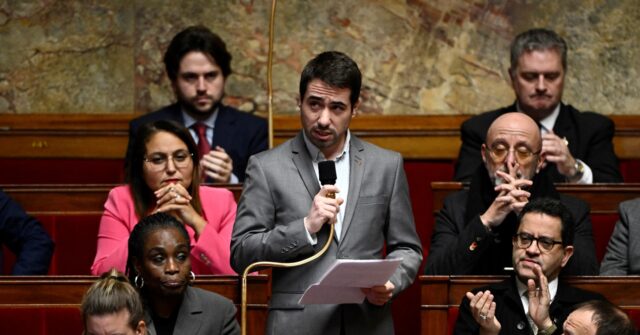In a significant political scandal, Andy Kerbrat, a member of the far-left French political party La France Insoumise (LFI) and MP for Loire-Atlantique, was arrested in Paris after allegedly purchasing a designer drug from a minor. The incident raises concerns regarding the conduct of politicians within the leftist New Popular Front coalition, which includes communists, socialists, and greens, and has been under scrutiny for multiple controversies. Following the arrest, Kerbrat took full responsibility for his actions and stated he would cooperate with the legal system while claiming to be addressing his personal struggles.
Reports from Le Figaro indicate that Kerbrat was observed engaging in what appeared to be a drug transaction on a Friday evening. He was found in possession of 3-MMC, a trendy synthetic drug popular among users in the French capital. The minor involved in the alleged transaction was also discovered with the same substance, in addition to around 200 euros in cash. This scandal not only tarnishes Kerbrat’s reputation but also reflects poorly on the broader political coalition to which he belongs, challenging their credibility on issues of drug policy.
Kerbrat has publicly acknowledged his “personal problems” and “psychological fragilities,” which he attributes to his drug use. In his statement, he expressed his intent to combat his addiction and stated his plan to enter a treatment program to help him resume his duties as a parliamentarian. Ironically, this admission comes after he previously proclaimed that combating drug use was among his top priorities as a member of the National Assembly, adding an undesirable layer of hypocrisy to the unfolding situation.
The incident drew strong condemnation from various political figures, including the French Interior Minister, Bruno Retailleau, who emphasized the crucial responsibility of members of parliament to set a positive example for society. Retailleau criticized the increasing issue of drug-related violence and warned that a parliamentarian’s involvement in illicit drug purchases is intolerable, given the current climate of drug gangsterism in France. This statement underscores the expectations of political leaders, especially in light of their public service roles.
Kerbrat’s arrest is not an isolated incident within La France Insoumise, reflecting a pattern of controversy surrounding its members. Earlier in the year, another LFI candidate, Raphaël Arnault, was discovered to have connections to Antifa and was listed on France’s national security watchlist yet was still elected to the National Assembly in July. Such events pose questions about the leadership and vetting processes within the leftist coalition, suggesting that the party may be struggling with internal discipline and public image management.
As this scandal unfolds, it poses a significant challenge to the New Popular Front coalition, already grappling with issues of credibility. The broader implications of Kerbrat’s actions and the party’s responses may influence public perception of their ability to effectively lead and advocate for policy changes, particularly concerning drug legislation. It will remain crucial for the coalition to address these issues openly to restore trust among constituents and mitigate the damage inflicted by the misconduct of its members.

